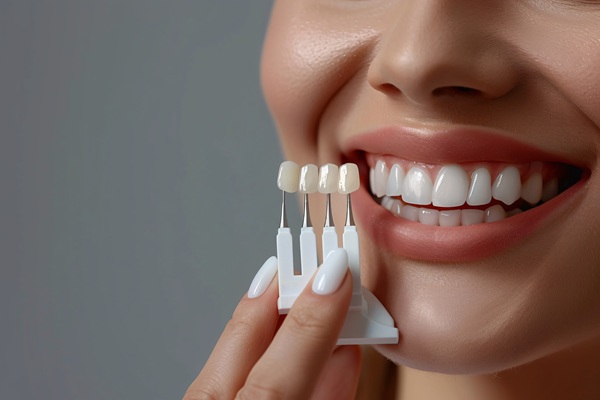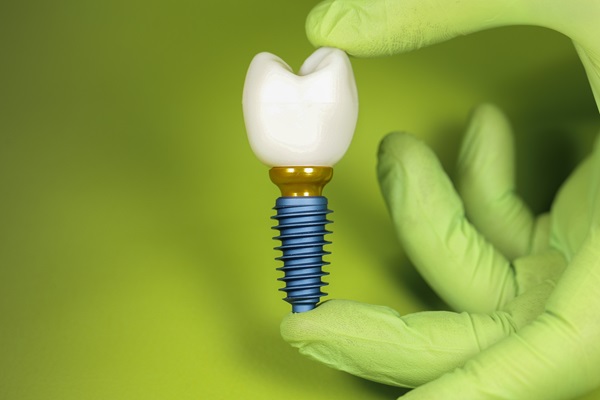 Dental crowns are an investment into oral health that requires proper care and maintenance to ensure longevity and function. Adopting a consistent oral hygiene routine can keep the crown in pristine condition. The following blog will discuss techniques to help you maintain and care for your new dental crowns.
Dental crowns are an investment into oral health that requires proper care and maintenance to ensure longevity and function. Adopting a consistent oral hygiene routine can keep the crown in pristine condition. The following blog will discuss techniques to help you maintain and care for your new dental crowns.
Brush and floss regularly
Maintaining good oral hygiene habits is crucial for the health of a dental crown, as well as one's general oral health. Brush your teeth at least twice daily with a soft-bristled toothbrush and non-abrasive toothpaste. Hard-bristled toothbrushes or abrasive toothpaste can scratch the crown's surface and cause more wear and tear over time. Ask the dentist about recommended products that maintain the crown's integrity or toothpaste specifically made for sensitive teeth.
In addition, floss at least once a day using a gentle up-and-down motion to clean between your teeth and around the new crown. You can also use a water flosser. Pay attention to the gum line around the crown to remove plaque and food particles. Proper oral hygiene prevents gum disease and tooth decay, which can affect the integrity of the crown.
Avoid chewing hard or sticky foods
While dental crowns can withstand normal biting and chewing forces, it is important to be mindful of what you eat to prevent unnecessary stress or damage. Avoid biting on hard objects such as popcorn kernels, ice, and hard candies, as they can potentially cause fractures or dislodge the crown. Sticky foods like caramel or chewing gum can also pose a risk by pulling on the crown. Stick to a balanced diet that includes a variety of soft, nutritious foods to protect the crown.
Quit smoking and limit the consumption of staining substances
Smoking not only poses risks to one's overall health but also can stain a dental crown over time. Excessive consumption of coffee, tea, red wine, and certain fruits can also stain the crown and surrounding teeth. Minimize or quit consuming these substances altogether to maintain your crown's appearance.
Schedule regular check-ups
Routine dental check-ups are essential for your dental crown's long-term success. Regular visits to the dentist allow for professional cleanings, examinations, and the ability to detect potential issues with the crown early on. The dentist will assess your crown's condition and general oral health, recommending maintenance or repairs as needed.
Consider wearing a night guard
If you have a habit of grinding or clenching your teeth (bruxism), the dentist may recommend wearing a night guard while sleeping. Bruxism can exert excessive pressure on the crown, leading to potential damage. A custom night guard can help protect the crown and natural teeth from the effects of grinding or clenching while you sleep.
Need more tips?
Proper maintenance and care are vital for preserving the integrity and longevity of your new crown. If you want to learn more about dental crown care, call our office for more information. We can provide you with more tips and tricks to help you maintain your restored smile for years.
Request an appointment or call Dental Partners Dickson at 615-931-4088 for an appointment in our Dickson office.
Related Posts
A general dentist helps patients prevent oral health concerns before they become problems. A dental checkup is the key way they achieve this. However, there are other preventive dental services that general dentists offer to boost oral health for patients of all ages.Preventive dental services focus on maintaining oral health and avoiding the development of…
Teeth whitening treatments can help you achieve the bright smile you have always wanted. Dentists have two main options they offer patients regarding whitening their teeth: professional teeth whitening and at-home whitening kits. Professional teeth bleaching treatments can be broken down into conventional and laser whitening treatments.These two teeth-whitening alternatives use peroxide-based chemicals as bleaching…
Considering dental crowns? Read on to learn more about this restoration option. Dental crowns can address a number of issues, ranging from cavity treatment to stain coverage. However, despite being a common and successful treatment, there are a few factors to consider ahead of time.Below is a quick rundown of what to know before getting…


